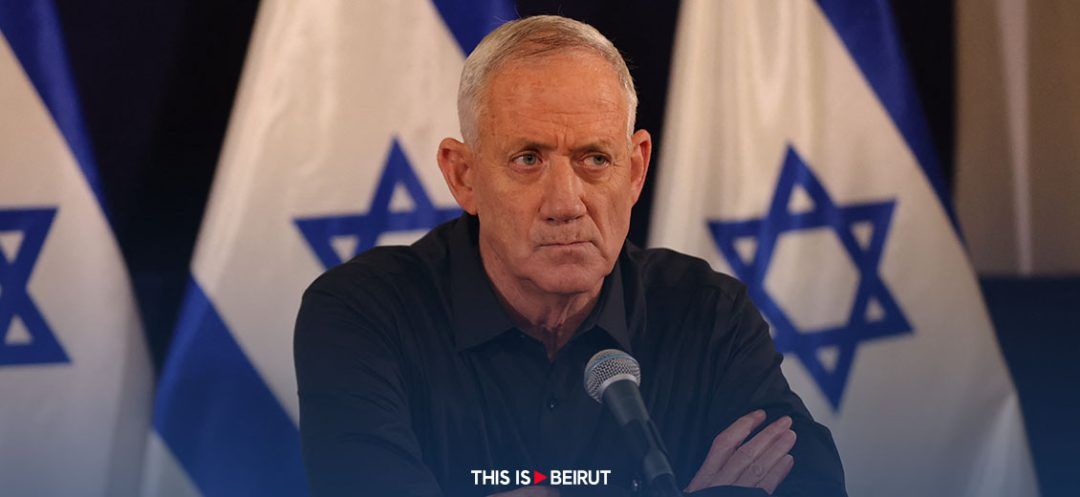- Home
- War in the Middle East
- Gantz Gives Ultimatum to Netanyahu on Post-War Gaza Situation

©(Abir SULTAN, AFP)
Minister without portfolio in Israel's war cabinet, Benny Gantz threatened on Saturday evening to quit Prime Minister Benjamin Netanyahu's current government, if it failed to propose a clear vision for the post-war period in Gaza.
At a press conference, Gantz said he wanted the war cabinet to draw up a six-point plan by June 8. After this date, and if his expectations are not met, Mr. Gantz said he would withdraw his centrist party from the Conservative Prime Minister's emergency government.
According to Al Jazeera, these six points are as follows:
Mr. Netanyahu was quick to react to this ultimatum, saying that the conditions set by his minister were "euphemisms with a clear meaning: the end of the war, the defeat of Israel, the surrender of most of the hostages, the abandonment of Hamas and the creation of a Palestinian state". According to several Arab-language media, including Al Jazeera, the meeting of the Israeli war cabinet held after the conference was "particularly stormy".
Far-right National Security Minister Itamar Ben-Gvir, a leading figure of the Israeli far right, called Mr. Gantz "a great deceiver".
Prior to the conference, Yair Lapid, a centrist opposition figure and former partner of Mr. Gantz, had called on Mr. Gantz and Gadi Eisenkot, another member of the war cabinet, to resign. Mr. Lapid was speaking at an anti-government demonstration in central Tel Aviv.
"If you hadn't been sitting there, we'd be six months past the era of Netanyahu and Ben-Gvir," said Mr. Lapid. "The fact that Mr. Netanyahu is still in power was made possible in your name," he added.
In recent weeks, pressure has been mounting on Mr. Netanyahu, who is facing criticism from all sides. On Wednesday, his Defense Minister, Yoav Gallant, took a public stance against him, stating that he refused to allow Israel to exercise military or civilian "control" over the Gaza Strip once the war was over.
At a press conference, Gantz said he wanted the war cabinet to draw up a six-point plan by June 8. After this date, and if his expectations are not met, Mr. Gantz said he would withdraw his centrist party from the Conservative Prime Minister's emergency government.
According to Al Jazeera, these six points are as follows:
- Return captives held in Gaza
- Overthrow Hamas, demilitarize the Gaza Strip, maintain "security control".
- Create an international civil affairs administration comprising Palestinian, Arab and Western elements.
- Facilitate the return of civilians to northern Gaza by September 1.
- Promote "normalization" with Saudi Arabia to build alliances against Iran and its allies in the region.
- Adopt a framework for national military service to supervise all Israelis signing up for compulsory service.
Netanyahu's reaction
Netanyahu strikes back
Mr. Netanyahu was quick to react to this ultimatum, saying that the conditions set by his minister were "euphemisms with a clear meaning: the end of the war, the defeat of Israel, the surrender of most of the hostages, the abandonment of Hamas and the creation of a Palestinian state". According to several Arab-language media, including Al Jazeera, the meeting of the Israeli war cabinet held after the conference was "particularly stormy".
Far-right National Security Minister Itamar Ben-Gvir, a leading figure of the Israeli far right, called Mr. Gantz "a great deceiver".
Prior to the conference, Yair Lapid, a centrist opposition figure and former partner of Mr. Gantz, had called on Mr. Gantz and Gadi Eisenkot, another member of the war cabinet, to resign. Mr. Lapid was speaking at an anti-government demonstration in central Tel Aviv.
"If you hadn't been sitting there, we'd be six months past the era of Netanyahu and Ben-Gvir," said Mr. Lapid. "The fact that Mr. Netanyahu is still in power was made possible in your name," he added.
In recent weeks, pressure has been mounting on Mr. Netanyahu, who is facing criticism from all sides. On Wednesday, his Defense Minister, Yoav Gallant, took a public stance against him, stating that he refused to allow Israel to exercise military or civilian "control" over the Gaza Strip once the war was over.
Read more



Comments